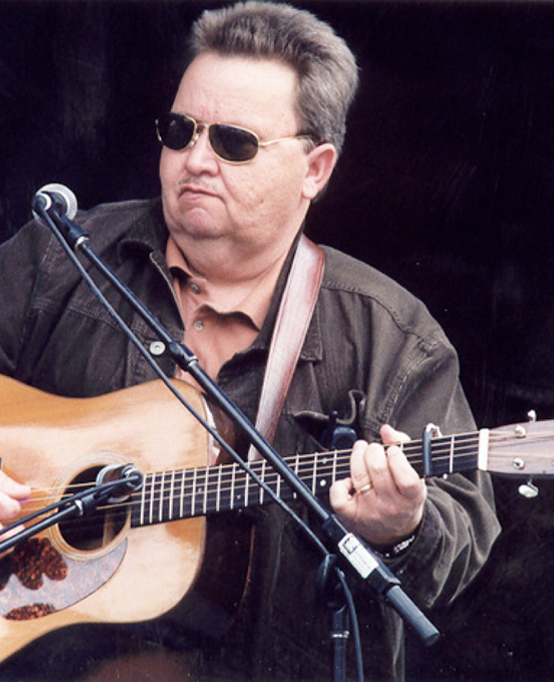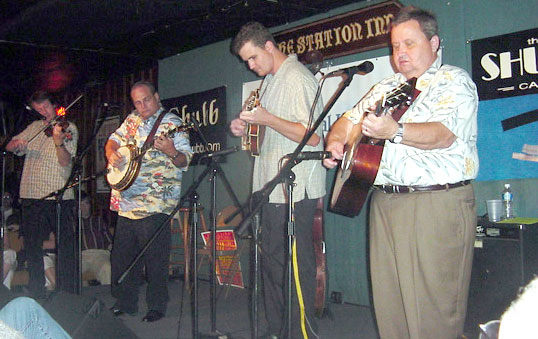

Pat Enright
notes by Rick Shubb
If you’re a bluegrass fan, then you know Pat as a founding member of the Nashville Bluegrass Band. Even if you’re not, there’s still a good chance that you’ve heard his voice. One of the voices of the Soggy Bottom Boys in the film O Brother Where Art Thou belongs to Pat Enright.

A native of Indiana, Pat lived in northern California during the early 70s. It was during his time in California that he was getting serious about music and refining his singing style, first with the Tonto Basin Boys and then his own Phantoms of the Opry. Several times Pat filled the lead singer/guitar spot in my group, the Hired Hands. Among hardcore bluegrassers, the regions outside the southeast have historically been criticized for a lack of true bluegrass singing. And for the most part, with good cause. These yankees might learn to pick, but none of ’em could sing. But like all generalizations, there are notable exceptions. During that time, Pat was bringing a real authentic bluegrass voice to the SF bay area.
Soon after that time, Pat moved to Nashville seeking the mainstream. He found his musical soul mate in singer and banjoist Alan O’Bryant, and the Nashville Bluegrass Band was born.
In 2003 Shubb Capos, along with Saga Musical Instruments, decided to host an event at the Nashville NAMM (music trade) show. We had rented the famous Station Inn for Friday night, and needed a strong band to headline our show. Naturally, I thought of my old friend. I called Pat on the phone; they were available, and happy to do it. I had one concern, though. I hadn’t seen Pat since the 70s, before the Shubb capo was on the market. I wasn’t positive that he used one, and if not, our show would have been slightly embarrassing.
“Uh, Pat …you do use a Shubb capo, don’t you?”
“Oh, yeah,” he reassured me, “I’ve been using your capos for years.”
The boys were great that night. And during the day Pat visited with me at the booth, where we had a chance to catch up on old times and new. He confirmed that it is still hard work to make a living playing bluegrass, even at the highest echelon, but acknowledged that O Brother had been a nice payday and career boost for him and many of his colleagues
